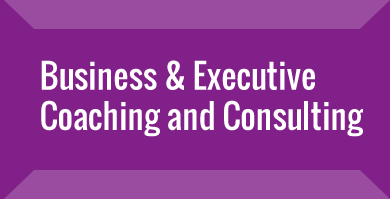If you want to improve decision making, team work, employee retention, customer satisfaction, productivity, increase sales and business success, then asking the proverbial question…“is the glass half empty or half full?”
This may not seem like the natural starting place, however, research has consistently suggested otherwise.
Optimism it seems (seeing the glass as half full) makes a significant difference to these business measures.
Think about it for a moment...
Would you rather work with someone who lightens up your day or someone who constantly sees the dark side in life and expects difficulties in the work they do?
It's no wonder then that people who radiate optimism fuel more positive results.
Research also tells us that positive people not only generate better business results but are likely to live longer, healthier and happier lives.
But, if we know that optimism improves business metrics, can leaders and managers help people to be more positive and see the world more brightly?
A new analysis of research by John Malouff and Nicola Schutte at the University of New England, NSW Australia suggests that we can learn to be more positive.
They looked at 29 pieces of research which investigated different interventions that focused on increasing peoples' optimism and helped them to have a more positive outlook on life.
The inventions ranged from sensory isolation, mindfulness, self-compassion training, Cognitive Behaviour Therapy (CBT), to best possible self-interventions.
Most of the studies used 'best possible self-interventions', a common optimism intervention often used by executive and business coaches. This involves coaching participants on imagining themselves after an event when everything has gone as well as it possibly could.
The results of the research showed a small but significant increase in optimism; however, the effect was relatively short lived, lasting only for a short time.
Further analysis showed a bigger increase in optimism when they only included 'best possible self-interventions' in the analysis. The impact was far greater straight after the intervention than when measured later.
Interestingly, the results also pointed to a significant difference between interventions carried out online compared to those interventions carried out in person.
Those interventions delivered in person were far more effective than those delivered online.
It is worth noting that optimism is only one of the emotional drives in Business Emotional Intelligence and over reliance on optimism can also make people unrealistic about what they can achieve. This is why any work-based behavioural change intervention that focuses on optimism is likely to have a limited time span.
What is needed for behavioural change to be sustained for the longer term is a continuous and complete focus on developing the key emotions and behaviours that change the way people work.
For leaders and managers who want a short term behavioural change, the technique of “best possible self-intervention” could be their secret weapon to get an individual or team to raise their performance.
Further, if you want to raise performance by encouraging emotional and behavioural change, “from a glass half empty to a glass half full perspective”, here are 3 top tips for building a positive and optimistic workplace.
1. Create Clarity - provide positive feedback to ensure people recognise how what they do impacts on their teams or their business success, so they know and can say, "I did that.... I made that happen."
2. Reinforce Connections - Take a little time each day to focus on helping people bond; help them smile by having non-work related conversations and build stronger connections.
3. Promote Meaning - Today, perhaps more than at any other time, people want to feel what they do makes a difference. Surveys constantly show that up to 70% of millennials want careers that have meaning. Promote or link roles and tasks that support the interests and goals of people who are doing them, to show where they have made a difference to customers, colleagues and their community.
Work does not have to be difficult or unfulfilling. You can improve business metrics by not just focusing on “best possible self-interventions when performance is dipping or work is difficult but using your business emotional intelligence and ensuring, where possible, that work is a positive, energising experience for all involved.
With thanks: EBW, Emotional Intelligence Systems newsletter, July 2018



























